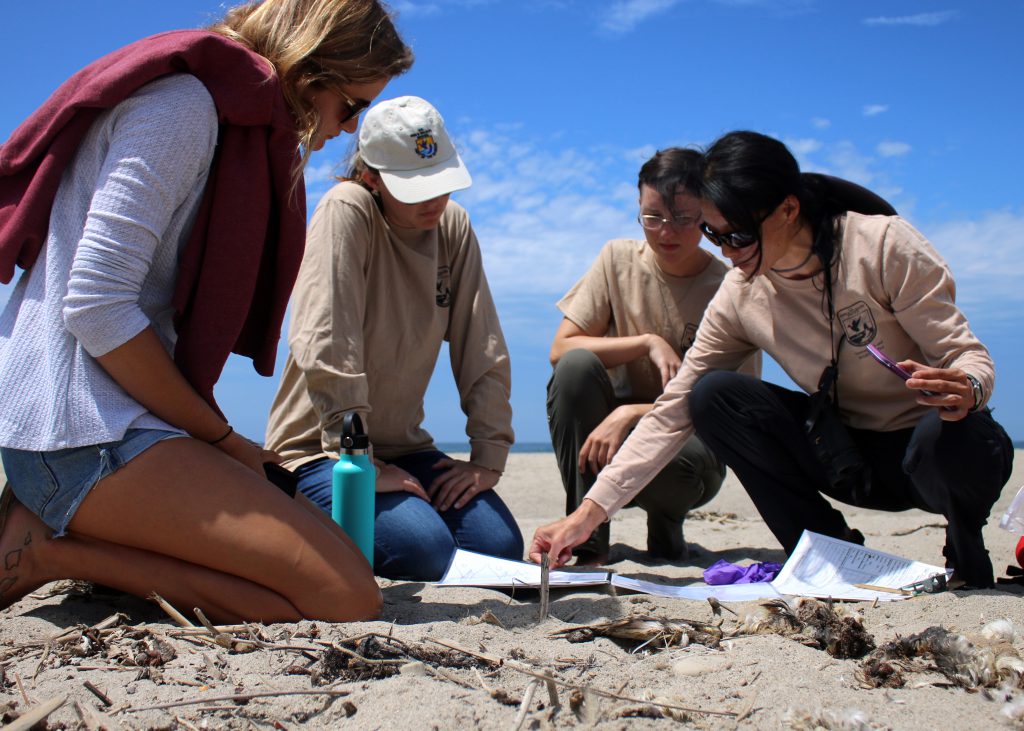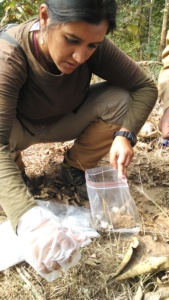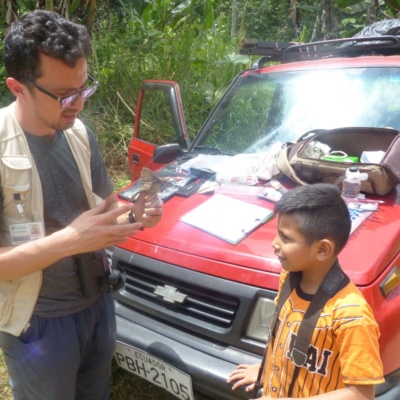Biodiversity Blog
 Biodiversity Observers: Leveraging Tourism for Conservation Science
Biodiversity Observers: Leveraging Tourism for Conservation Science
Biodiversity Observers: Leveraging Tourism for Conservation Science

For over a decade, I have been engaged with wildlife and conservation issues in India. I started my career as a wildlife filmmaker, transitioned into working at a wildlife rehabilitation centre and finally into applied research. My interests lie at the intersection of human-wildlife interactions, landscape ecology, population dynamics and carnivores. My ongoing research focuses on assessing factors that allow carnivores to persist under extreme anthropogenic pressures. At the spatial scale, I aim to understand how carnivores use a fragmented landscape, while at the temporal scale I will examine patterns of behavioral adaptation.

Since my work is based in a human-dominated landscape, where forests are interspersed with privately owned agricultural lands, my research also delves into assessing the willingness of farmers to modify their land use and adopt wildlife-friendly agriculture under an incentive program. I use a combination of demographic, economic and socio-psychological variables to assess drivers of farmer willingness. By combining ecological, social and economic dimensions of my research, I hope to identify tangible solutions that could help incentivize private landowners, while at the same time expanding available habitats for wildlife.
 Biodiversity Observers: Leveraging Tourism for Conservation Science
Biodiversity Observers: Leveraging Tourism for Conservation Science
I am fascinated by the diversity and complexity of natural systems. As a community ecologist working predominantly with plants, I integrate ecology and evolution to characterize and understand the drivers shaping diversity in communities. I am passionate about informing quantitative approaches with natural history and leveraging ecological inference to improve conservation and management. The majority of my work is based in South Florida’s hyper-diverse, critically imperiled pine rockland ecosystem, but I am also involved in community ecology studies ranging from characterizing the diversity of grasshopper diets to modeling drivers of pelagic shark biodiversity in the North Pacific.
As a UFBI fellow, I will continue my doctoral work leveraging long-term data from vegetation communities in pine rockland fragments. These tiny habitat fragments are part of the urban mosaic in Miami-Dade County and endure strong anthropogenic influences such as fire suppression, invasive species, and changes in surrounding land use. The goal of my work is to detail how and why plant diversity has changed in these fragments over time to inform the future of their management. Additionally, I hope to create an interactive web-based application that will allow for easier navigation and visualization of this one-of-a-kind dataset.
Currently, I am a PhD candidate advised by Dr. Benjamin Baiser in the department of Wildlife Ecology and Conservation. I received my Master of Science degree in Wildlife Ecology and Conservation from the University of Florida and my Bachelor of Science degree in Biology from Providence College in Rhode Island.
I am broadly interested in how foundation species (habitat-forming organisms) in marine systems respond to environmental changes, and the implications of those responses for ecosystem function, biodiversity, and resilience. As a Ph.D. student in Dr. Andrew Altieri’s lab in the Department of Environmental Engineering Sciences I have been working in coral reefs off the Caribbean coast of Panama at the Smithsonian Tropical Research Institute’s field station in Bocas del Toro. My research there examines the direction of interactions among newly dominant space-holding organisms, and how those interactions mediate reef persistence. In addition, I am using the reef urchin, Echinometra viridis, as a model organism for studying how variation in grazing intensity impacts coral population dynamics and reef structural integrity. When I return to Panama, I will conduct experiments comparing the relative impacts of grazing intensity, consumer diversity, and trophic structure on coral persistence. I anticipate using my experimental and observational data in structural equation models to identify the causal agents of coral reef trajectories. In addition, over the summer I synthesized hundreds of papers and used Bayesian modeling techniques to conduct a meta-analysis on the ecological roles of dead foundation species on various ecosystem functions in marine systems. This paper is now in its final stages and should contribute to our understanding of the drivers of biodiversity in systems characterized by foundation species. I am also passionate about science communication and occasionally utilize my background as a videographer to develop short videos such as this one that promote and explain marine research to a broader audience.
One of my main passions revolve around the concept of biological scaling in biodiversity. The fact that processes and patterns in diversity vary across scales of space, time, and biological organizations both puzzle and fascinate me. My main focus is tied to the effects of spatial scaling on the biodiversity of ants. Ants are the taxon of focus for me because they are: globally distributed, taxonomically tractable, and contribute heavily to the functioning of many ecosystems. They also display magnificent examples of biological scaling in terms of biological organization as they are eusocial organisms with scales spanning a tiny individual worker caste to entire colonies with thousands of individuals.
My background is in community ecology where I have spent several years running large-scale field manipulation experiments on ants in Florida. However, I have also delved into quantitative side projects involving the assessment of roadkill at regional scales and the drivers of Amazonian freshwater fish diversity. Nowadays my research has taken on a more ecoinformatics-based approach where I assess the biodiversity of ants from regional to global scales.
At the UFBI, my main research delves into two projects. The first being that of understanding how ant biodiversity scales across space by assessing the species-area relationship in ant biodiversity at a global scale. The second project involves understanding the drivers and patterns of trait and functional diversity in ants at global scales. Both projects often involve tangling with multiple datasets at varying scales while constantly keeping the biological context of the organism in play.
I am a Ph.D. candidate in the Florida Museum of Natural History, working with Dr. Scott Robinson. My research interests are broad, including landscape, behavioral, community, and molecular avian ecology along environmental gradients.
Environmental gradients are natural labs useful to explore the mechanisms driving the origin and maintenance of biodiversity. Western Ecuador — a region the size of North Carolina — lies in the transition of the precipitation gradient embedded in the Tumbes-Choco-Magdalena biodiversity hotspot. My research focuses on exploring the patterns and processes driving avian communities and genomes along this gradient.
At a community level, I explore the ecological drivers of bird abundance. In collaboration with professor Dr. Denis del Valle, I intend to develop a novel N-mixture model for classifying ecological groups and determine landscape and climate factors that best explain community-wise patterns. At genome level, I explore the role of landscape, climate and aggressive interference driving the gene flow between Back-band Wren and Fascinated Wren, specialized in wet and dry open areas, respectively.
My research will contribute to the understanding of the ecological and evolutive mechanisms shaping avian genomes and communities and the potential impact of climate change on biodiversity.
